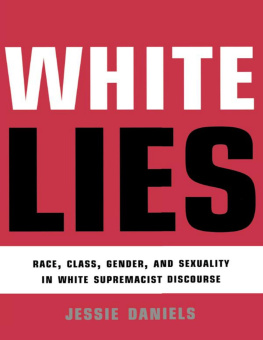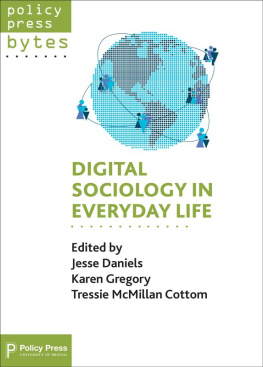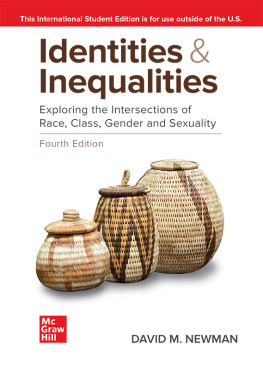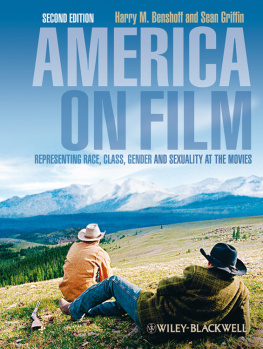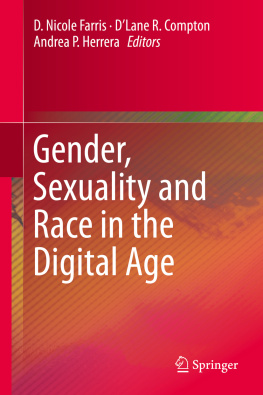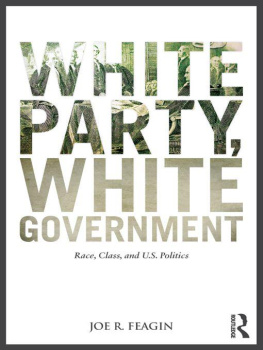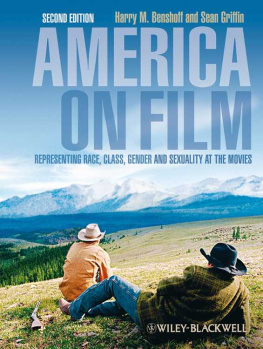Jessie Daniels - White Lies: Race, Class, Gender and Sexuality in White Supremacist Discourse
Here you can read online Jessie Daniels - White Lies: Race, Class, Gender and Sexuality in White Supremacist Discourse full text of the book (entire story) in english for free. Download pdf and epub, get meaning, cover and reviews about this ebook. year: 2016, publisher: Routledge, genre: Politics. Description of the work, (preface) as well as reviews are available. Best literature library LitArk.com created for fans of good reading and offers a wide selection of genres:
Romance novel
Science fiction
Adventure
Detective
Science
History
Home and family
Prose
Art
Politics
Computer
Non-fiction
Religion
Business
Children
Humor
Choose a favorite category and find really read worthwhile books. Enjoy immersion in the world of imagination, feel the emotions of the characters or learn something new for yourself, make an fascinating discovery.
- Book:White Lies: Race, Class, Gender and Sexuality in White Supremacist Discourse
- Author:
- Publisher:Routledge
- Genre:
- Year:2016
- Rating:5 / 5
- Favourites:Add to favourites
- Your mark:
- 100
- 1
- 2
- 3
- 4
- 5
White Lies: Race, Class, Gender and Sexuality in White Supremacist Discourse: summary, description and annotation
We offer to read an annotation, description, summary or preface (depends on what the author of the book "White Lies: Race, Class, Gender and Sexuality in White Supremacist Discourse" wrote himself). If you haven't found the necessary information about the book — write in the comments, we will try to find it.
Jessie Daniels: author's other books
Who wrote White Lies: Race, Class, Gender and Sexuality in White Supremacist Discourse? Find out the surname, the name of the author of the book and a list of all author's works by series.
White Lies: Race, Class, Gender and Sexuality in White Supremacist Discourse — read online for free the complete book (whole text) full work
Below is the text of the book, divided by pages. System saving the place of the last page read, allows you to conveniently read the book "White Lies: Race, Class, Gender and Sexuality in White Supremacist Discourse" online for free, without having to search again every time where you left off. Put a bookmark, and you can go to the page where you finished reading at any time.
Font size:
Interval:
Bookmark:

WHITE LIES
Race, Class, Gender, and Sexuality in White Supremacist Discourse
by Jessie Daniels
First published 1997 by Routledge
Published 2016 by Routledge
2 Park Square, Milton Park, Abingdon, Oxon OX14 4RN
711 Third Avenue, New York, NY 10017, USA
Routledge is an imprint of the Taylor & Francis Group, an informa business Copyright 1997 by Routledge.
All rights reserved. No part of this book may be reprinted or reproduced or utilised in any form or by any electronic, mechanical, or other means, now known or hereafter invented, including photocopying and recording, or in any information storage or retrieval system, without permission in writing from the publishers.
Notices
Practitioners and researchers must always rely on their own experience and knowledge in evaluating and using any information, methods, compounds, or experiments described herein. In using such information or methods they should be mindful of their own safety and the safety of others, including parties for whom they have a professional responsibility.
Product or corporate names may be trademarks or registered trademarks, and are used only for identification and explanation without intent to infringe.
Library of Congress Cataloging-in-Publication Data
Daniels, Jessie, 1961
White lies : race, class, gender and sexuality in white
supremacist discourse / by Jessie Daniels.
p. cm.
Includes bibliographical references and index.
ISBN-13: 978-0-415-91290-7 (pbk)
1. White supremacy movementsUnited States. 2. United States
Race relations. 3. United StatesSocial conditions1980
4. Discourse analysisSocial aspectsUnited States. I. Title.
E184.A1D245 1996
305.800973dc20
9621014
CIP
For three from whom I have learned so much
Patricia Hill Collins
Joe R. Feagin
Christine L. Williams
Contents
On Epistemology, Whiteness, and Sexual Politics:Personal Reflections on Standpoint and White
Supremacist Discourse
The sociological imagination, C. Wright Mills wrote, is the intersection of biography and history (1959). Over the last two decades, feminist scholars in a variety of fields have proven the truth of this insight, and taken it to dimensions Mills could not have envisioned (and probably would not have embraced), by arguing for the importance of the personal in understanding the political.
Standpoint, as so many feminist scholars have noted, is important to epistemology and to the theory we develop; claims to objectivity are but obfuscations of stance whether acknowledged or not. The analysis of white supremacist discourse which follows here has been influenced by my standpoint; and, at the same time, my understanding of that standpoint has been influenced by my analysis of white supremacist discourse.
During the course of doing research for this book, I learned that my paternal grandfather was, for a brief period of time, a member of the Ku Klux Klan in Texas during the 1920s. In the time that has passed since discovering this, I have pondered how to come to terms with this information in the context of this book. The debate I was having with myself involved whether or not I should publicly disclose that he had been a Klan member. On the one hand, this fact constituted part of my standpoint. On the other hand, his membership was very brief (the story goes that he joined because he found the idea of being part of a moral crusade appealing, but dropped out when he saw that the group was intent on racial violence), and remains an unpleasant, and little discussed, artifact of my family history. There were no Klan robes that were handed down as part of a family legacy, and I discovered the fact of his membership quite by accident. Furthermore, by exposing this obscure detail of personal history, I would certainly risk being dismissed by critics as either a white liberal, consumed by guilt, trying to atone for the sins of my grandfather; or, worse still, I would somehow be labeled an apologist
for white supremacist ideology, which I most definitely am not. My experience has been that many people assume that a white person doing research on white supremacists must be sympathetic to their cause. So, it seemed this fact was better left out. It was not that relevant, after all, and revealing this seemed an act of disloyalty to my family. I finally decided, however, that the disloyally was not to my family, it was to whiteness.
As Mab Segrest puts it, The white supremacists had it right, in some ways, I was in fact, a race traitor, disloyal to the cause of whiteness
(1994).
But there was another, more difficult issue that I grappled with about telling this family secret. If I were to reveal that my grandfather was a Klan member, should I go on to reveal that he was the very same grandfather that molested me as a child? I think not. Surely, this is much too personal, and not relevant. But the debate continued in my mind, and I wondered why I considered it relevant to reveal one and not the other. And, further, doesnt this perfectly illustrate my point about race, gender, and sexuality being intertwined? I then realized the importance of including this narrative here. The further irony is that this Klan member and child-molester raised my father, who was most certainly not abusive and who, for his generation, held astonishingly egalitarian views of gender. He, along with my mother, raised mea girlchild born in the early 60s of Texas, where feminism was a dirty wordto believe unreservedly in myself and in my abilities, to believe that I could be or do anything. And yet, my gender-egalitarian father could simultaneously harbor and espouse ideas about, even argue enthusiastically for, Black inferiority and Jewish corruption. It was not until many years later that I understood that, in large measure, the belief in my ability that pervaded my girlhood was predicated on being white and middle-class. It was based on the conviction that I would grow up to occupy that space of complete agency and privilege that my maternal grandmother referred to as being free, white, and twenty-one.
Part of the privilege of my girlhood was that I was considered at a relatively young age (10, 11, 12) a full, intelligent human being; and, at that age, I enjoyed, almost more than anything, debating ideas with my father into the wee hours of the night. As he would attest, I began disagreeing with my father about racial politics (and doing so vehemently) early on. For reasons that are still not clear to me (perhaps I sensed that I
could somehow be excluded with such thinking; perhaps I had absorbed the cultural messages from outside my home about the civil rights movement; perhaps I identified with my oldest brother, eleven years my senior and a bona fide, long-haired, hippie radical; perhaps I just wanted to disagree with my father), I argued against his views, primarily of Black inferiority. Those late-night discussions gave me special insights into white supremacist thinking; after all, I grew up trying to think and argue against it.
My standpoint has influenced my analysis of epistemology, whiteness, and sexual politics, and my analysis has influenced how I view my standpoint. Thus, my personal experience of privilege (being white and middle-class) and oppression (being a woman and a lesbian) has given me a particular angle of vision for analyzing white supremacist discourse and has also deeply affected me. It has made me more aware of my own position as a subject or target (as a race traitor) of white supremacist attacks (whether symbolic or physical), and the ways that subject position is connected to others. My analysis has also made me even more aware of my own privilege, and how this, too, is predicated on the complicated nexus of race, class, gender, and sexuality.
Font size:
Interval:
Bookmark:
Similar books «White Lies: Race, Class, Gender and Sexuality in White Supremacist Discourse»
Look at similar books to White Lies: Race, Class, Gender and Sexuality in White Supremacist Discourse. We have selected literature similar in name and meaning in the hope of providing readers with more options to find new, interesting, not yet read works.
Discussion, reviews of the book White Lies: Race, Class, Gender and Sexuality in White Supremacist Discourse and just readers' own opinions. Leave your comments, write what you think about the work, its meaning or the main characters. Specify what exactly you liked and what you didn't like, and why you think so.

